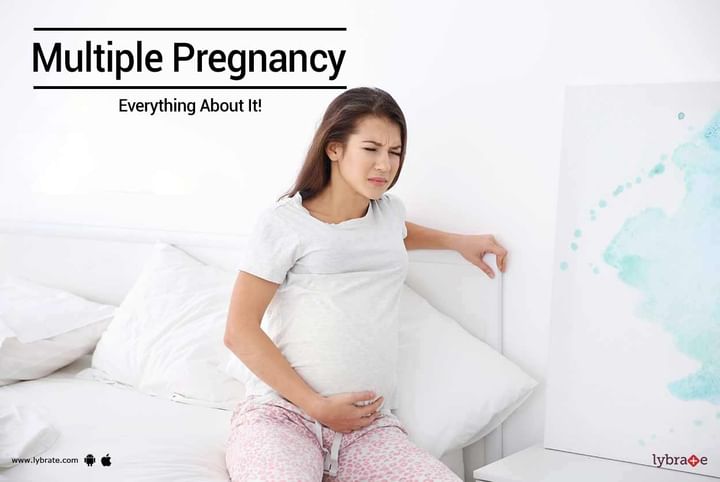Multiple Pregnancy - Everything About It!
A multiple pregnancy means being pregnant with triplets, twins, or more. Three foetuses or more is referred to as a ‘higher-order’ pregnancy – it occurs rarely, in just one out of 50 multiple pregnancies.
How do multiple pregnancies occur?
Multiple pregnancies result from having multiple embryos implanted in the womb or uterus. This may happen when more than one egg is released during the menstrual cycle, each being fertilized by a sperm. Sometimes, a fertilized egg breaks into two identical embryos.
Who is at risk of multiple pregnancies?
Multiple pregnancies have become very common these days, primarily because of the use of IVF. Middle-aged women, particularly aged 35 or older, have greater chances of releasing multiple eggs during ovulation. This naturally makes them prone to multiple pregnancies. Moreover, those with a family history of twins are also more likely to have multiple pregnancies.
How do you know you are having multiple pregnancies?
Your gynaecologist will be able to tell if you are expecting multiple babies after checking for certain symptoms and conducting a thorough diagnosis. These include –
• Rapid weight gain in the initial stage of pregnancy
• Severe morning sickness
• More than one heartbeat picked during a prenatal examination
• Larger than the usual uterus
Are multiple pregnancies a case of ‘high-risk’ pregnancy?
A pregnancy is considered ‘high-risk’ when there are chances of complications concerning the health of the baby, the mother, or both. One such case is that of multiple pregnancies.
This is mainly because when you are carrying more than one baby – twins, triplets, or more – you are at a greater risk of premature labour and certain conditions like gestational diabetes, and pregnancy-induced hypertension.
Moreover, since multiple pregnancies are most common in women who are 35 or older, the baby is due at a high risk of complications during or after birth. This is because unlike in the case of women who achieve pregnancy between teen years and early 30s, the chances of contracting a genetic defect or miscarriage further increases once you turn 40 years of age.
Apart from these, any pre-existing condition, such as autoimmune disease, elevated blood pressure, and diabetes may present complications for the unborn child and the mother. This is even truer in the case of multiple pregnancies. The most common complication for the foetuses is preterm birth. Studies claim that more than half of all twins are born prematurely.
If you are diagnosed with multiple pregnancies, or if the doctor suspects your pregnancy to be ‘high-risk’, then you will have to be more attentive towards your health – eat healthy, exercise regularly, and make the necessary lifestyle changes as prescribed by the gynaecologist. Most importantly, make an appointment with your doctor and follow up regularly to monitor the health of the foetuses.



+1.svg)
